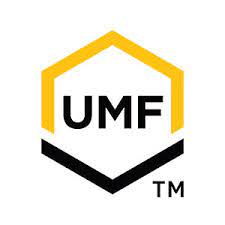Bees. Honey. For thousands of years, humans and bees have lived in harmony.
Whether it is for healing wounds, trade or simply eating, honey has cropped up again and again in history, the benefits countless.
Boos Bees is a honey business based in Horwich, owned by Vicki Robinson-Birbeck, which sells local honey, bees wax candles and offers mentoring to new beekeepers. She also offers businesses the opportunity to sponsor the beehives that she owns, so that she can save bees – sometimes she is called out to help a swarm start a new hive.
So far, she has twenty-five bee hives, and she is expanding into a special woodland apiary.

But what are the benefits of bees? Without bees, the earth would not be the same. Their pollination process props up ecosystems globally, allowing plants to flourish and reproduce. By pollinating food crops on fields, which by hand would cost farmers approximately £1.8 billion per year, they allow plants to grow food for humans and animals to eat. Using nectar collected from the flowers, bees produce honey to preserve their food, it is something for the bees to eat during the colder months when there are fewer or no flowers in bloom.
Honey has huge benefits for humans, if collected, stored and used correctly. Natural and pure honey is rich in antioxidants, meaning that it reduces things like premature aging and heart disease.
Like everything, it is good in moderation, but it is also a slightly healthier sugar substitute as it lowers blood pressure.
As honey is also antibacterial, the NHS also use medical grade, sterilised honey in dressings to promote burn and wound healing, and while limited, there is evidence that shows it can help with skin conditions such as eczema, sore throats and coughs, digestive health and bee stings.
Modern archaeologists have found it in ancient Egyptian tombs, thousands of years old but still edible and we know that even the Ancient Egyptians used honey to help heal wounds.
Local honey has also been found to reduce the symptoms of hay fever.
However, on a more national scale, there is a big problem with honey adulteration, which is illegal in the UK and most countries worldwide. This is the addition of additives, colourings or syrups to make the honey go further.
In November 2024, an authenticity test was conducted by the Honey Authenticity Network in the UK, testing 30 different samples of honey. 25 of these were from retailers, with 24 having suspicious results, however the five from local beekeepers all came back genuine.
There are several ways to avoid doctored honey. One is to look for honey products that come from a single country of origin as they are less likely to have been doctored.
Another way is to look for the UMF certification, for Manuka honey, which shows that the honey you are purchasing is authentic.

A third way is to buy local honey, one example is Boos Bees.
Local honey is often more gently farmed, with the beekeepers only taking the excess honey and looking after the bees.
Vicki Robinson-Birbeck said “I’m a gentle beekeeper, my bees are actually more important than the honey they make and I only take the excess. After all it is their honey not ours.”
Boos Bees honey is 100% honey, strained to remove the beeswax which is edible, but improves the texture, and the wax then goes on to be made into candles. This is such an important take on quite a sensitive issue, as beekeepers can be aggressive or take too much honey and replace it with a sugar substitute, which isn’t healthy for the bees.
However, as humans progress, bees face more and more threats each day. 24% of bumblebee species across Europe are facing extinction, and on average, hoverfly and bee species have reduced by a quarter in the UK. Things like pesticides and herbicides are a factor in reducing the number of bees, along with diseases and parasites.
Climate change has a major impact on bees too; with seasons shifting and changing, bees struggle to cope with summer droughts, floods, cold springs and floods.
By supporting local beekeepers, like Vicki, they can help support bees and furthermore the environment. Her website, which is a new edition to her business, is http://boosbees.co.uk
Together we can save the bees.
By Abigail Leaper